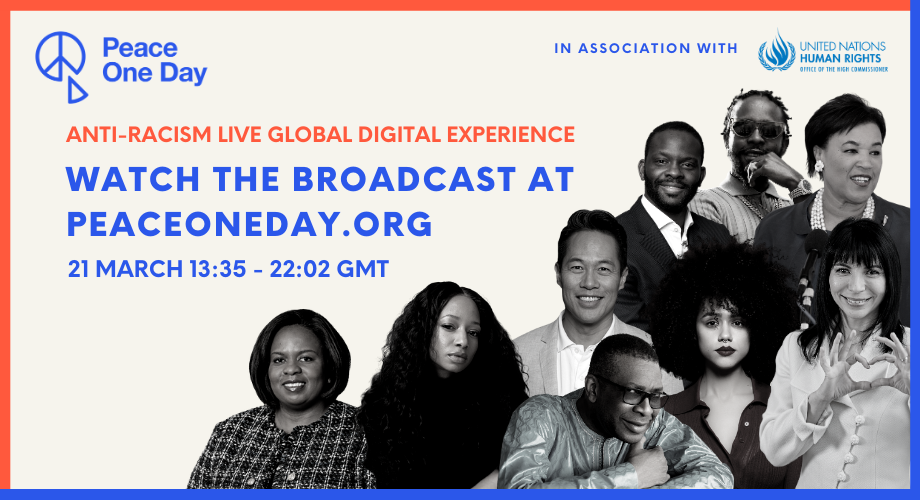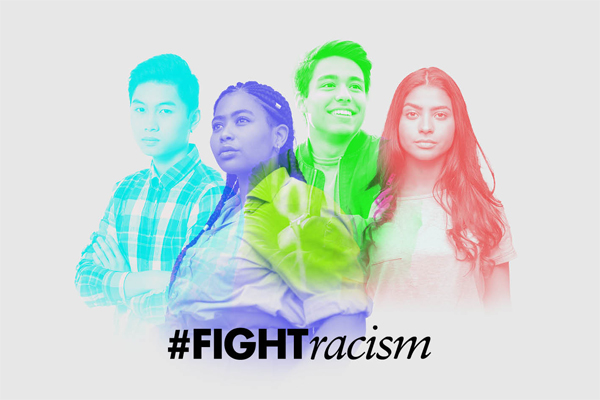Today on 21 March, we observe International Day for the Elimination of Racial Discrimination.
‘Youth standing up against racism’ is the theme for this year. Young people massively showed their support at the 2020 Black Lives Matter marches, which drew millions of demonstrators worldwide. Many young people came together to protest against racial injustice last summer, both on the streets and on social media. They called on their peers to speak out and stand up for the equal rights of all. The rise in Anti-Asian sentiment worldwide is also gaining attention from all age groups; but particularly a huge backing from youth to put an end to this kind of xenophobia and intolerance.
“Their activism was all the more remarkable in the context of the Covid-19 pandemic, which saw restrictions on public gatherings in many countries,” according to the UN. As the virus began to spread in early 2020, a parallel pandemic of hatred, violence and fear against certain ethnicities and nationalities was unleashed. It quickly became clear that stark inequities, sometimes rooted in racism, had subjected minorities to a significantly higher risk of infection and death.
Covid-19 has heavily impacted young people, including those from minority backgrounds. Many are now grappling with an increase in racial discrimination, in addition to severe disruption to their education; diminished employment prospects; and limited ability to participate in public life, which hinders their individual and social empowerment.
BACKGROUND TO THE DAY
International Day for the Elimination of Racial Discrimination is observed annually on the day the police in Sharpeville, South Africa, opened fire; and killed 69 people at a peaceful demonstration against apartheid “pass laws” in 1960.
In 1979, the General Assembly adopted a programme of activities to be undertaken during the second half of the Decade for Action to Combat Racism and Racial Discrimination. On that occasion, it decided that a week of solidarity with people struggling against racism/racial discrimination, from 21 March, would be organised annually in all States. Since then, the apartheid system in South Africa has been dismantled. Racist laws and practices have been abolished in many countries; and we have built an international framework for fighting racism; guided by the UN’s International Convention on the Elimination of Racial Discrimination. The UN Convention is now nearing universal ratification. Yet many individuals, communities and societies continue to suffer from the injustice and stigma that racism brings around the world.
PEACE ONE DAY
This year, the UN’s #FightRacism theme aims to foster a global culture of tolerance, equality and anti-discrimination; and calls on each and every one of us to stand up against racial prejudice and intolerant attitudes. Today millions around the world will unite virtually for a day filled with hope, reflection and connection. Peace One Day, in partnership with UN Human Rights, will host the Anti-Racism Live Global Digital Experience. It will feature internationally acclaimed artists, actors and prominent speakers, united in their message of diversity, inclusion, equality and justice.

You too can take part. The event will be streamed live on 21 March at www.peaceoneday.org from 1.35 pm to 10:02 pm (GMT), in the Arabic, Chinese, English, French, Portuguese, Russian and Spanish. The live broadcast will aim to raise awareness of the International Day; facilitate conversations that will foster a more diverse and inclusive world; and set out action points to help individuals and organisations strengthen their anti-racism engagement.
Racism, xenophobia and intolerance are problems prevalent in all societies. But every day, each and every one of us can stand up against racial prejudice and intolerant attitudes. Be a human rights champion, #fightracism and #Standup4humanrights. Click here for more information on what you can do to fight racism.







































